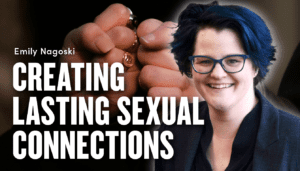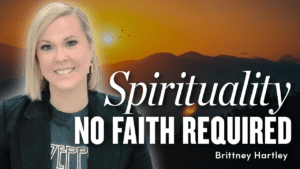Sometimes we find ourselves involved in organizations, governments and communities that might be psychologically unhealthy to us or our communities. John Larsen has collected a few points you can use to check to see if an organization might be considered dangerous or unhealthy.
- There are elections with only one candidate up for each office.
- All members are expected to vote in unison.
- The term “beloved” is applied to a living leader by other leaders of the organization.
- Loyal members calling for reform or change are purged or otherwise silenced.
- There are no means for membership to appeal a decision.
- The group is willing to break up families or other social structures to further or preserve its own organizations.
- Members are encouraged to look and dress the same. Uniformity is encouraged or required in clothing, haircuts, jewelry, etc.
- Life events are controlled by the organization. For example, you cannot marry without leadership approval.
- There is an organizationally controlled media including television, radio and newspapers. All outside media is cast as suspect.
- The organization is overly focused on winning over vulnerable populations such as the youth, those who are grieving, or those in financial distress.
- The group is involved in many business or monetary transactions wholly unrelated to the central mission of the organization.
- Members are encouraged or required to never say anything negative about the leadership.
- The organization uses litigation as a means to silence dissident membership or outside organizations speaking against the group.
- Community leaders are chosen by the central organization. Local communities have no say in who their representatives will be.
- The governance structure of the central organization is ambiguous, hidden or unknown.
- Obedience to the central organization is encouraged over all other values.
- All finances are kept secret.
- The leadership of the organization is preoccupied with the most intimate details of member’s lives including finances, sex and personal relationships.
- Leadership tends to speak of the victim-hood of the organization even in endeavors where the organization has a majority or controlling influence.
- Organizational history is overly sentimentalized and unflattering information is edited out of official documents.
- The organization insists that it has primacy or is more important than all other organizations.
- The group has an almost obsessive focus on the outward appearances of organizational buildings and properties, grass is meticulously cut, no litter is ever found, grounds are always perfect. A great deal of time and effort is spent on this resource.
SHOW NOTES:
Mormon Stories
- 1677: John Larsen – Your Friend, the Church
- 1736: Mormon Church Finances Revealed – The Widow’s Mite Project w/ Radio Free Mormon
- 1751: Mormon Church Assets – Ensign Peak, Real Estate, and Temples – Widow’s Mite Report Pt. 2
- 1443-1447: Recovering Agency – Examining Mormon Mind Control w/ Luna Lindsey Corbden
Other sources:
- Combating Cult Mind Control | Steven Hassan
- Why People Believe Weird Things | Michael Shermer
- Conspiracy: Why the Rational Believe the Irrational | Michael Shermer
- The Manipulated Mind: Brainwashing, Conditioning and Indoctrination | Denise Winn
- The Structure of Scientific Revolutions | Thomas Kuhn
- The Lucifer Effect: Understanding How Good People Turn Evil | Philip Zimbardo
- The Demon-Haunted World: Science as a Candle in the Dark | Carl Sagan
- Recovering Agency: Lifting the Veil of Mormon Mind Control | Luna Lindsey Corbden
- Mistakes Were Made (but Not By Me) Third Edition: Why We Justify Foolish Beliefs, Bad Decisions, and Hurtful Acts | Carol Tavris
- Team of Rivals: The Political Genius of Abraham Lincoln | Doris Kearns
- What Stocks Does Ensign Peak Avoid? (wordpress.com)
Mormon Expressions is made possible by generous donors! Help us continue to deliver quality content by becoming a donor today:
John & Carah on Other Platforms:
- Mormon Expressions Podcast on Spotify
- Nuancehoe on YouTube
- Nuancehoe on Patreon
- John Larsen on YouTube
Support Mormon Stories Podcast here:
- One-time or recurring donation through Donorbox
- Support us on Patreon
Our Platforms:
- Patreon
- Spotify
- Apple Podcasts
Contact Us:
MormonStories@gmail.com
PO Box 171085, Salt Lake City, UT 84117




8 Responses
Always glad to see John Larsen. He reminds me that I am not alone. It is valuable to hear a voice like mine. I don’t speak out much (yet) so I am grateful for his courage. John Larsen is keeping it real. Thanks!
I take notes as I listen a 2nd time to most 9f John Larsen’s podcasts on MS. Now alive got another one to register to! So 5hankful for great minds and insightful dialog. I don’t cringe any more at the F bombs :) it was really instructive what John Larsen explained about voices of hurt & anger. Got it. Thank you very much.
I’m not a Mormon or ex Mormon. So I’m not angry, but I find Larson’s anger powerful. (My mother taught me not to waste swear words. They are meant for their power and shock value.) Larson has an appropriate target of experience. The church culture hides behind a cheesy mandate of sweetness. I had to hit New York culture to stop equivocating. 🤣
“Ways the Church is like North Korea” (or something similar) is one of my all time favorite ME episodes!
J Larsen & J Dehlin are supposed to be smart. But comparing the Mormon exodus to the Bataan death march and to the Holocaust is not smart. In fact, it’s ignorant. U.S. soldiers and Jews are owed an apology. A bad case of Mormon-phobia apparently fuels ignorance.
Each of these events were horrible times in history from which hopefully we can learn. Despite their major differences, they might share a few similar threads, nonetheless.
As I see the world, all smart people will make blunders from time to time by making improper comparisons, or might even hold different viewpoints. Perhaps it’s unfair to categorize people as “ignorant” when they foul-up from time to time in our imperfect societies or hold a different opinion.
I suggest while describing the attributes of others that you consider painting with a narrower brush, as I would suppose you are a smart individual that occasionally errs as well. My 2¢ worth.
Best wishes.
John Larsen has this special ability to speak to my soul, thanks JD for providing a monthly platform for him. I treasured JL’s insights in his podcast and was grieved when he ended it. It was an unexpected treat to have JL comeback. Likewise, losing JD would be equally painful.
Let me say, that I for one understand the anger of Mr. Larson. His occasional “bad language” retorts are simply a potent way of expressing his justifiable anger at the straight jacket the Church puts on its members and the disingenuous ways that the religion employs to buttress their truth claims.